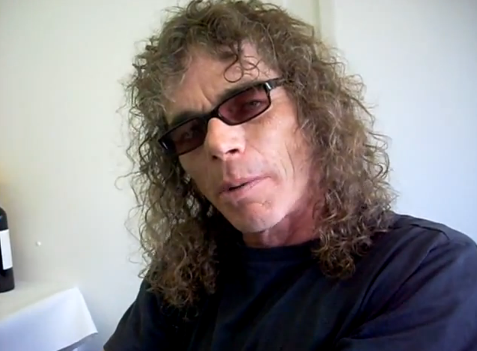Noisecreep recently conducted an interview with Vice President and Marketing Executive John Franck of Razor & Tie Records, who discussed diversity his the label’s roster.
Razor & Tie’s roster has a nice balance of veteran acts (P.O.D., Shadows Fall) and newer artists (Chelsea Grin, Defiler). Has that balance been something that the label has purposely aimed for?
No question. For us, we feel it’s important to strike a balance and have artists of all shapes and sizes-baby developing acts, semi established acts and well established bands. As far as our developing roster goes, we’re looking for bands that have the ability to create opportunities for themselves and grow over time-and bands that have the potential to write great songs. And while this all may sound obvious, a lot of times it isn’t. A band like Such Gold (who is a pop-punk, hardcore act) is a great example of this. They’ve been able to tour around the world on their own and create a nice buzz for themselves through sheer hustle and hard work. As excited as I am about our current album (Misadventures), I can’t wait to hear what their second, third and fourth albums will sound like— and that all takes time. And patience. We also place significant stock on who manages each act we can potentially sign. Smart, experienced, managers can add tremendous value and we don’t take that lightly.
As far as veteran, established artists go, it’s a little more complicated. But ultimately, without over stating the obvious, it comes down to the record(s) and where the band’s base is. The material needs to be there. We’ll ask a lot of questions. Can the band still make a great record? Are the songs there, or can they get there? And is the band open to working with our A&R department, and/or working with a suggested producer, mixer, outside song writer(s) as opposed to just “delivering” a record. If there’s an opportunity to take something to commercial radio, and the band has had previous success there, we like to try and work with them to give them the best possible opportunity to win. At times, this can be an immensely challenging dialogue, especially with a band or artist that has had a significant sales history. We look at each opportunity and try to make balanced decisions. In the last year, we’ve also passed on several established artists whose records were already recorded because we didn’t feel the songs were there or the opportunity to help them get there in a way that could provide meaningful results for the label.
The label has signed a few artists (Shadows Fall, P.O.D.) that were formerly on major labels. Have you come across any situations where a management team has pushed back, still expecting major label kind of money/muscle behind their acts?
The business has drastically changed over the past decade. The retail account base has dramatically diminished; the way music is consumed and monetized is still constantly evolving. Every signing is different, but the fundamental need to have a healthy/transparent relationship with artist/manager remains the same. As a business, we have to stay rooted in reality. There has to be transparency from the on-set of the relationship, and if everyone’s expectations are clearly defined and re-defined throughout the course of the project it helps move things along. Of course, there are exceptions to the rule, but I’ve always viewed the relationship between label and manager as a balancing act. That will never change. As I mentioned earlier, Razor & Tie wants to be in business with smart, reality based managers with a real panoramic understanding of the label (and the touring business) as it sits in 2012. These are the types partnerships we’re looking for. And smart managers ask a lot of questions BEFORE the band signs the deal. We’re also fortunate to work with several managers that we’ve had long-standing relationships with and welcome the opportunity to be in business with them and work with their artists.
A lot of music critics and artists complain that the art of A&R and overall artist development is a lost art. What’s your take on that?
Without good A&R (and the ability to make smart deals,) at a certain point, you’re going to hit a brick wall. A&R is a major part of what we do and I view us as an A&R driven company. I say this a lot, we work in a business that released 75,000+ albums last year; there’s never been MORE of a need for A&R than there is now. There needs to be a filter — preferably, several filters. As it relates to Razor & Tie specifically, in the last year, we’ve made significant efforts to make A&R a more inclusionary process and an ongoing discussion with key department within the label. Making great records has never been more important than it is now. In the past year, Pete Giberga and I have had countless conversations with artists to reinforce just how important the song writing and record-making process is. Inevitably, bands are judged days, weeks and sometimes months out from album release when their records either leak or are premiered online. It’s on us to make sure we’re available to help in every facet of the record making process. Given the size of our roster, this isn’t always possible, but there are certainly examples we can point to where we feel the A&R process added a lot and our artists came out with better records because of it.
The rest of the interview can be read here.















